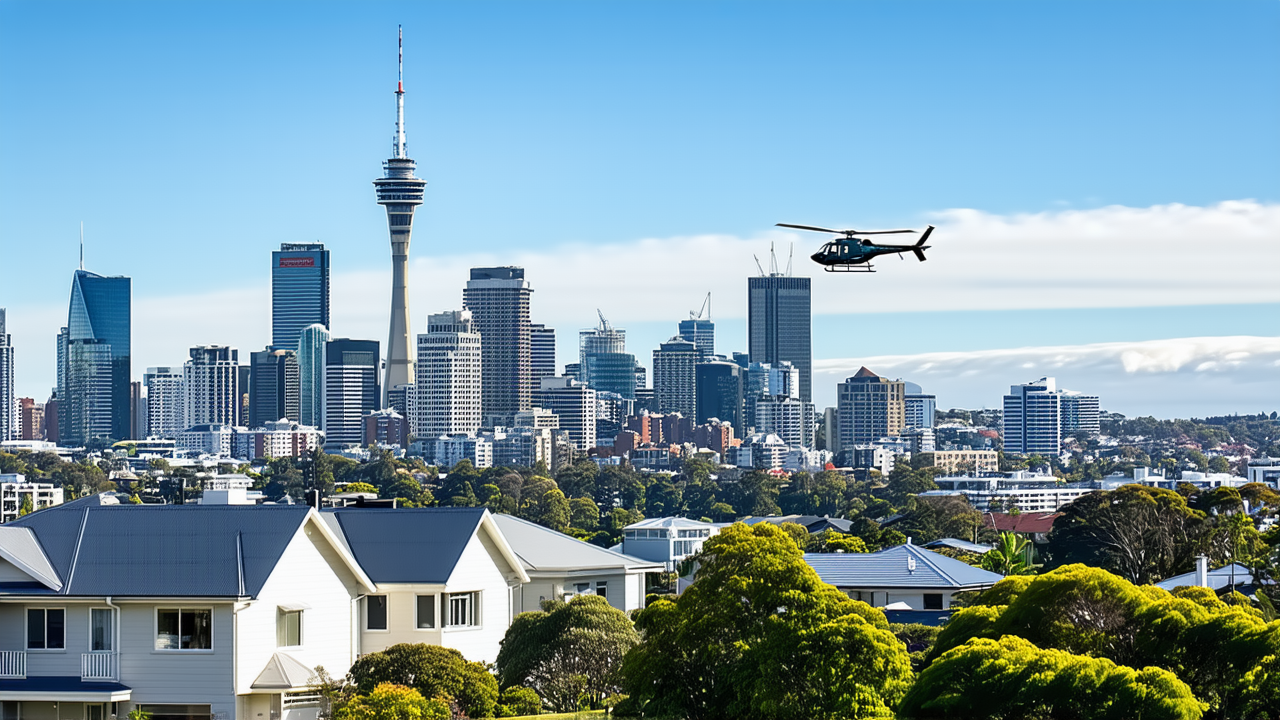Auckland Councillors Agree on Helicopter Ban Goal, But Face Bureaucratic Hurdles
Auckland Councillors Agree on Helicopter Ban Goal, But Face Bureaucratic Hurdles
Amid growing public concern over the impact of private helicopters on residential areas, Auckland councillors have reached a consensus on the desired outcome of banning such operations in neighborhoods. However, the path to achieving that goal remains unclear, tangled in a complex web of bureaucracy and political challenges.
The Motion and the Pushback
The debate began with a motion proposed by Waitematā and Gulf Ward councillor Mike Lee, who has filed two motions of notice calling for a prohibition of private helicopters in residential areas. The motion has drawn both support and controversy, particularly following the recent approval of a helipad for wealthy residents Anna Mowbray and Ali Williams at their Westmere home, which is now under challenge in the Environment Court.
Two Paths, One Goal
Councillor Lee’s first motion urged the council to amend the Unitary Plan to make private helipads in residential areas a prohibited activity city-wide. The second motion sought the same change but limited it to the Hauraki Gulf Islands section of the council’s District Plan. The second motion was passed by the council but still requires central government approval. However, the motion to change the Unitary Plan proved far more complicated.
Advisory Staff Warn of Challenges
Council advisory staff warned that a city-wide ban would be extremely difficult to implement, requiring permission from the Minister Responsible for RMA Reform, Chris Bishop. Many councillors believe the minister would likely reject such a request, leading to a potential dead end.
An Amendment Proposes a New Strategy
During the meeting, Councillor Richard Hills, who chaired the session, proposed an amendment to Lee’s motion. The amendment suggested that the council first seek a declaration from the Environment Court to strengthen its legal standing before approaching the minister. Hills argued that this approach would increase the likelihood of success and prevent wasting public funds on a potentially futile effort.
Lee Criticizes the Amendment as an 'Ambush'
Councillor Lee strongly opposed the amendment, calling it an unfair and unannounced maneuver. He argued that the council should have had time to consult and prepare for the motion, and that the amendment undermines the council’s reputation. “This outcome-by-ambush approach with no forewarning whatsoever is not going to help the reputation of the council,” Lee said.
Diverging Opinions on the Best Path Forward
While some councillors supported the amendment, believing it was more likely to gain ministerial approval, others, like Lee, were convinced that the minister’s intent was to streamline planning processes, not to block necessary changes. Lee argued that the international norm is to strictly regulate or prohibit private helipads in residential areas, and that Auckland is an outlier in this regard.
A Delicate Balancing Act
Despite the disagreements, there is a shared goal: to prevent private helicopters from disrupting residential neighborhoods. However, the method to achieve this remains a point of contention. The challenge now lies in finding a path forward that balances legal feasibility, public support, and political will.
What’s Next?
With the Environment Court challenge ongoing and the council’s motion still in flux, the future of the helicopter ban remains uncertain. The outcome will depend on whether the council can secure the necessary legal and political backing to move forward with the plan.
This is a developing story. More updates will follow as the situation unfolds.
